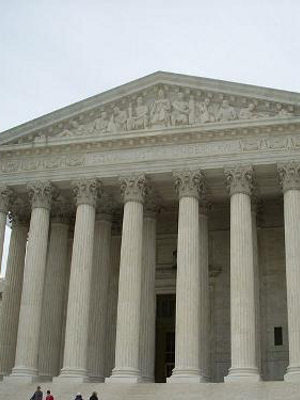A polarized debate is not really a debate and offers no cure
The central issue before the Court concerns the “minimum coverage provision,” better known as the individual mandate, requiring everyone to have some health insurance by 2014. Those challenging the 2010 Patient Protection and Affordable Care Act (derisively labeled Obamacare by its critics), frame the core issue as one of individual liberty, asking whether the federal government may compel individuals to buy healthcare insurance from private companies. The Act’s defenders frame the issue very differently: Can Congress, in fashioning a response to the nation’s healthcare crisis, regulate how people pay for the healthcare they will utilize? It seems as if supporters and critics of the Affordable Care Act are speaking different languages, or at the least, addressing different issues.
Parallel universes dominating the healthcare debate is a sign of the times. Indeed, as with so many things in these times, it seems as if people are talking past one another, seeing what they want to see from their polarized perspectives, and being generally uninterested in listening, learning, or problem-solving. Critics of the Act are talking about freedom and liberty, while defenders are talking about the national crisis of America’s broken healthcare system – in which it pays far more than any other nation for healthcare yet suffers from high obesity, infant mortality, and other indicia of poor health. One in six Americans is uninsured, presenting them with a 40% higher risk of death than the privately insured. Insurance is often denied even to those willing to pay for it.
Of course, a rational debate would see ideology give way to empirical data. Yet the focus of so much of the U.S. healthcare debate has been the perceived threat of government to individual liberty, rather than a clear-eyed look at the effectiveness of different systems of healthcare delivery which have been tried. Indeed, to compare and contrast costs and benefits of the American, Canadian, British, Swedish, and other healthcare systems would be instructive. Recall that in the 1954 landmark civil rights ruling of Brown vs. Board of Education, the Court struck down racially segregated public schools based on empirical social science data.
It seems most likely that however the Court rules in June, it will do so by a 5-4 vote, and that the Court’s rationale for the ruling will be unconvincing to a significant portion of the American people. In “How the Justices Get What They Want” (The New York Review of Books, December 8, 2011),Yale law professor Robert W. Gordon examines the likelihood that “One of the most important pieces of domestic legislation in decades may stand or fall on the vote of a single member of a politically divided Supreme Court.” Indeed, it seems that Justice Kennedy, the swing vote on the Court, holds the fate of the nation’s health in his hands.
Prior to oral argument, legal analysts foresaw a 7-2 ruling affirming the Act’s constitutionality. Following the circus-like argument theatrics, they now predict a 5-4 ruling. A divided Court is not a unifying Court. The ruling will likely come at the height of the 2012 presidential election campaign season with great political fallout. A court that impacts the political and electoral process is a polarizing court. And a court that relies upon arcane rules and obscure doctrines to reach outcomes that defy common sense loses public respect. A court that violates its own long-standing principles and precedents to reach unwelcome outcomes, as it did in the Citizens United case that treated corporations as natural persons with free speech rights, further loses public respect.
What doctrines and rationales are likely to be offered by the Court? How and why has it deviated from long-standing practices and principles of judicial restraint? Are the justices now legislating from the bench? Part III will look at trends that may be seen from some of the Court’s most contentious rulings of the 21st century and seek to answer these questions.
About the author:
The author, a constitutional law scholar, member of the California Bar and TNP contributing writer, lectures on law, ethics and critical thinking in the undergraduate and graduate programs at the University of New York in Prague.
published: 7. 5. 2012







